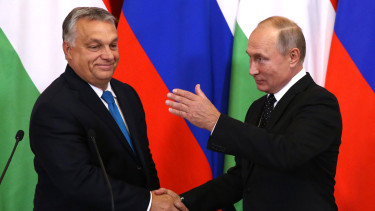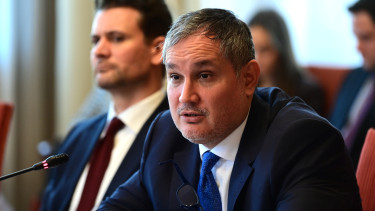Economy
Merkel ally warns Hungary's Orbán not to cross red lines
Re-elected earlier this year for his third consecutive term (fourth in total), Orbán has attracted criticism for delaying accreditation for CEU, a university founded by financier George Soros, an outspoken critic of Orbán. The populist politician secured his party another supermajority in the April election on a heavy anti-migration campaign and by vilifying Soros.
A draft package of legislation dubbed ‘Stop Soros’ would subject non-governmental organisations that receive foreign funding to strict regulation has been compared by critics to measures in non-European Union states like Russia.Critics say the European People's Party (EPP), which includes German Chancellor Angela Merkel's Christian Democrats (CDU), has pulled its punches because of a need for its member's votes in the European Parliament. Fidesz's commanding position at home means it contributes a big chunk of the EPP's caucus, Reuters reported today.
But Andreas Nick, a CDU lawmaker and his party's Hungary rapporteur, has become the latest EPP figure to say Orbán's latest moves on CEU and the NGO law risked crossing red lines.
His remarks, coming shortly after criticism by Manfred Weber, another Merkel ally and the EPP's president in the European Parliament, suggest that patience is running out for a party increasingly seen as being far outside the democratic mainstream.
The Council of Europe, Europe's human rights watchdog, is due to issue a report on the proposed NGO law next month, and Nick said Hungary's reaction to that would be a crucial test of its willingness to respond to criticism.
But Cas Mudde, an expert on Fidesz at the University of Georgia, was sceptical aboutwhether critics would stay the course if Orbán did back down.
A draft package of legislation dubbed ‘Stop Soros’ would subject non-governmental organisations that receive foreign funding to strict regulation has been compared by critics to measures in non-European Union states like Russia.Critics say the European People's Party (EPP), which includes German Chancellor Angela Merkel's Christian Democrats (CDU), has pulled its punches because of a need for its member's votes in the European Parliament. Fidesz's commanding position at home means it contributes a big chunk of the EPP's caucus, Reuters reported today.
But Andreas Nick, a CDU lawmaker and his party's Hungary rapporteur, has become the latest EPP figure to say Orbán's latest moves on CEU and the NGO law risked crossing red lines.
Would I prefer Fidesz to stay within the Christian Democrat camp? Of course. But our Hungarian friends need to understand that crossing certain lines would make life very difficult for everyone
, Nick told Reuters.His remarks, coming shortly after criticism by Manfred Weber, another Merkel ally and the EPP's president in the European Parliament, suggest that patience is running out for a party increasingly seen as being far outside the democratic mainstream.
The Council of Europe, Europe's human rights watchdog, is due to issue a report on the proposed NGO law next month, and Nick said Hungary's reaction to that would be a crucial test of its willingness to respond to criticism.
But Cas Mudde, an expert on Fidesz at the University of Georgia, was sceptical aboutwhether critics would stay the course if Orbán did back down.
This is a pre-emptive strike... criticising Fidesz mildly, before real critique comes out, and then later either not following up or accepting marginal adjustments
," the news agency cited Mudde as saying.






